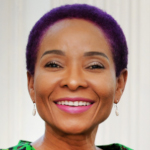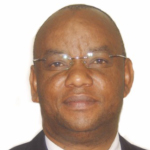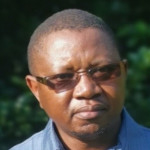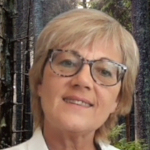
On 8 and 9 September 2021, the Unisa Western Cape Region hosted, in virtual format, its seventh annual Academic Development Symposium. The theme for its 2021 convention was "Deliberations on the educational landscape in 2021: Is this a 'respice prospice' moment for higher education?"

More than 15 universities and post-school institutions across Africa attended this year’s symposium.
This year’s symposium captured the seamless re-integration of an array of thematic influences derived from previous years, into a space of thoughtful reflection. In the opening segment and in subsequent presentations, systemic competencies in terms of digital awareness and readiness were held as poignant points of reference, whereby academics, academic support specialists and administrative staff had to reconsider, re-interrogate and revisit choices on how to address disruptive challenges in terms of teaching and learning during a pandemic. Through conversations, the theme of disruption through radical change and technology innovation overshadowed the narratives linked to mere complacency and traditional stakeholder engagement.

Prof Mamokgethi Phakeng, Vice-Chancellor, University of Cape Town
Guest speakers at the symposium included Prof Mamokghethi Phakeng (University of Cape Town), Prof Christopher Mwangi Gakuu (University of Nairobi), Prof Lumkile Lalendle (University of South Africa) and Dr Karin Wolff (Stellenbosch University). In her opening address, Prof Phakeng highlighted the intricate concerns and implications of Covid-19 in mainstream academia. Through reflection, she revisited the importance of strategic documents, tactical alignments and operational mandates as ways to address the "I don’t know" narratives and uncertainties during the pandemic.
As universities are spaces where ideas and innovation are often policy adjacent, the importance of combining an institutional transformational agenda with new insights to current and unique social issues, were also emphasised. According to Phakeng, the changes that Covid-19 brought to the fore have already led to a change in higher educational institutional views, attitudes and values to institutional pillars of excellence, scholarship and research, transformation and sustainability. If carefully considered, Phakeng highlighted, these pillars can through careful scholastic and invested planning, further eliminate and eradicate societal marginalisation.

Prof Christopher Mwangi Gakuu from the University of Nairobi in Kenya
Through mirror-imagining his reflection on the current status of higher education in Africa, Prof Gakuu outlined and demonstrated how Kenya has responded to recent changes amid the global disruption of the Covid-19 pandemic. Gakuu highlighted the critical dividing factors of the Kenyan society and how innovation in terms of Information and Communications Technologies (ICTs) can also bring to the fore challenges in mainstreaming opportunities. He highlighted the importance of distance learning as a viable alternative mode of instructional delivery.
Similar to the 2020 symposium, elements of inequality, disinvestment, datafication and digitalisation were again considered as foreshadowing factors which curb access to social, economic and educational inclusion at traditional universities. Again, challenges in educational programmes or learning innovation were not spared. To address these, Gakuu suggested that greater emphases should be placed on technology adoption, access, communication and innovation, to address societal inequalities in terms of access, psycho-social support and unequal social-economic structures.

Prof Lumkile Lalendle, Executive Director: Planning and Quality Assurance, Unisa
Prof Lalendle presented a scan of Unisa’s current environment and revisited the lessons learned from the past. Although retaining elements that are still workable based on ODeL pedagogies, Lalendle outlined a concern on the huge disparity and the past inequalities that still exists, and which still impede access and inclusiveness for the remote and underserved students. Lalendle revisited various trends of concern which include the social trends, trends in emerging and current technologies, economic trends, and changes in the instructional models of higher education and online learning. In addition, Lalendle then highlighted the political polarisation in terms of access to funding and the importance of dealing with anomalies of contradiction and disruption.
In her presentation Dr Wolff outlined her theoretical stance through an adapted conceptual positioning of various frameworks to demonstrate the importance of scholarship and graduateness amid the Covid-19 pandemic. Starting off with the model of Tait (2000) and the revisitation thereof through the work of Gillmore, Wolff and Bladergroen (2017) against Ubuntu currere (Hlatshwayo, Shawa & Nxumalo, 2020), Wolff shared that curricula should be seen as an active conceptual tool that is dialectical, inclusive and democratic in nature and which enable varied voices. Wolff’s presentation further highlighted the importance of cognitive, affective and systemic considerations in the ambit of transactional distance, especially with the quasi-separation elements that exist in online teaching and learning.

Dr Karin Wolff, Teaching & Learning Advisor at Stellenbosch University's Faculty of Engineering
Overarching themes which cut across all presentations were the challenges in terms of growth, expansion and structural constraints especially in terms of innovation and transformation in online teaching and learning spaces.
In its seventh year, the symposium showed that the impact that Covid-19 has on the academe has truly warranted closer connection, not only in terms of the cognitive domain of university students, but also in terms of psychosocial, affective and systemic support.
What brought a uniqueness to this year’s event, were the issues raised on creative disruption in higher education. These issues called out trends in terms of globalisation, the mushrooming of digital technologies and the cost and resources to transform cooperative and collaborative networks to avoid absolute technological obsolescence. To this extent, Phakeng noted: "Disruption can be powerful, yet it needs to be principled to drive positive connection amid uncomfortable conversations. Disruption is needed to upset paternalistic structures to the benefit of modern-day society. So, higher education needs to seize opportunities to disrupt current systems and to transform and reinvent these, to be more meaningful to the context that we find ourselves in."
With a high feedback success rating, the Academic Development Symposium was held over a period of two days, commencing with an overall reflection, followed by keynote sessions and inter-institutional engagement.
* By Jacques du Toit, Unisa: Western Cape Region
Publish date: 2021-10-12 00:00:00.0